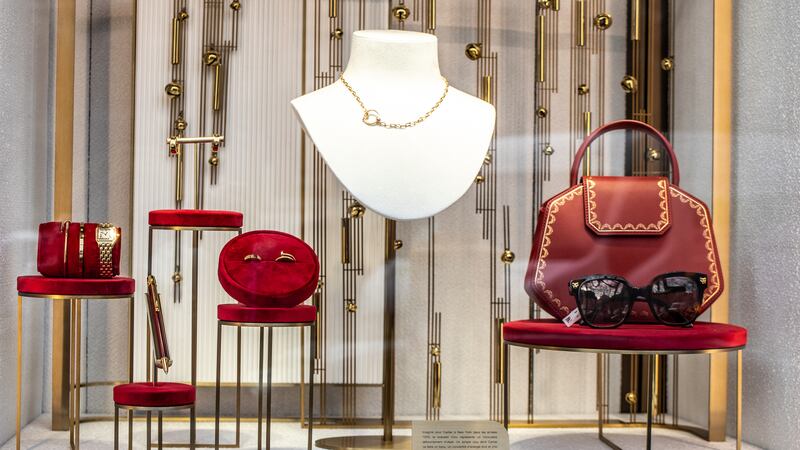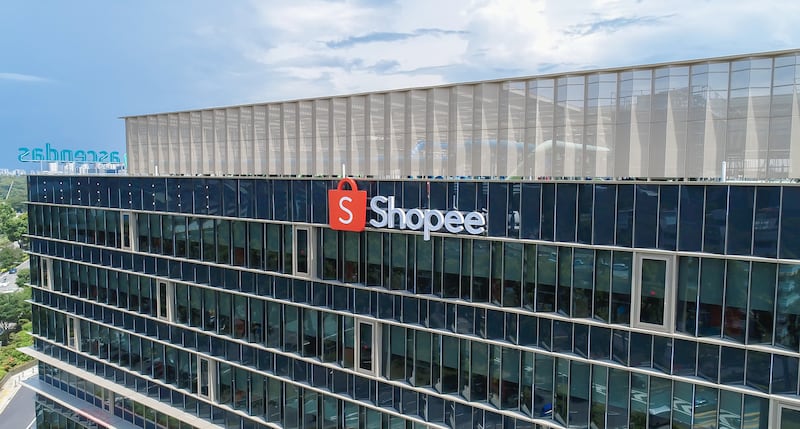
The Business of Fashion
Agenda-setting intelligence, analysis and advice for the global fashion community.

Agenda-setting intelligence, analysis and advice for the global fashion community.

This week, the BBC reported that Zara had earlier this month begun charging UK customers £1.95 ($2.44) to return online purchases by mail. The policy — already in place in 37 other countries — doesn’t apply to online orders returned in stores.
Outraged shoppers took to social media to complain. Some told horror stories about long queues and slow service when they attempted to bring items back to Zara’s stores. Others argued that Zara should improve its sizing and fits if they were going to charge for returns. A few applauded the new policy, saying it would nudge consumers toward more mindful consumption habits (the retailer said that it had begun charging for some returns in an effort to reduce its carbon footprint).
The environmental case for Zara’s switch is iffy — a delivery van picking up multiple returns will likely generate fewer emissions than individual customers driving to stores to avoid the fee, Deutsche Bank analysts wrote in a research note this week.
The economic case is clearer.
ADVERTISEMENT
Online shopping, which boomed over the pandemic, has a much higher rate of customer returns than in-store purchases. Shipping and processing returned items create mounting logistical costs, as well as carbon emissions. Still, retailers fear turning back the clock now that many shoppers have become accustomed to free and easy returns: in a 2021 survey by the payments firm Klarna, 57 percent of respondents said they would never buy from a retailer that charged for returns.
But some companies are looking to dial back these expensive perks that attracted shoppers during the pandemic. In October and November 2021, just under 40 percent of retailers said they charge for mailed returns, while about 2 percent planned to incur charges over the holiday period and 19 percent were undecided on what measures they would take, according to a survey by Appriss Retail and the US National Retail Federation.
Online returns “have been abused, and are more costly [not only] in terms of the logistical cost, but in terms of the environment as well,” said Joaquin Villalba, chief executive of retail analytics firm Nextail Labs, which counts River Island and Guess among its clients. He is also a former head of Zara-owner Inditex’s European logistics operations.
Zara is by no means the first retailer to charge for returns — in the UK, Uniqlo and Next charge customers for returning products via parcel shops or home collection. Retail experts suspect it will not be the last, especially if consumers prove more willing to pay the fee than they have indicated in surveys.
The Burden of Returns
E-commerce returns have always posed a logistical headache to retailers, but the costs have risen significantly in the past two years, as online sales overall rose dramatically and parcel carriers raised their rates to deal with surging volumes. In January, UPS said it would handle a record 60 million returns following on from the holiday season, 10 percent higher than the year prior. At the beginning of the year, shipping company Fedex increased average prices by 5.9 percent.
As consumers buy fewer stretchy sweatpants and more party dresses, those costs will only continue to rise. At Revolve, 54 percent of orders were returned, the highest rate in at least two years, according to Cowen. In its full-year results reported earlier this month, Boohoo recorded a return rate of 33.7 percent in its core UK market, up nearly 10 percentage points from the year prior.
“Returns are a big mess, especially in the fashion space … [and] always a profitability drain for brands,” said Balaji Santhanam, associate partner covering consumer goods, retail and logistics at consultancy Infosys.
ADVERTISEMENT
Online shopping bears a prodigious environmental cost as well, from packaging to the millions of home deliveries. The bulk of the fashion industry’s environmental impact takes place in manufacturing, however. Carbon emissions associated with returns are minimal in comparison.
Cutting overproduction, or the volume of clothes discounted at end of season, from 40 percent to 30 percent every year could save 158 million tonnes of carbon emissions, according to a 2020 report by McKinsey and Global Fashion Agenda. Reducing an e-commerce return rate from 35 percent to 15 percent, meanwhile, could save 12 million tonnes of greenhouse gas emissions per year, the report found.
Formulating the Best Policy
Whatever the motivation, charging for online returns will no doubt reduce the number of orders sent back. Incentivising in-store returns, which immediately puts products back in circulation, can also prevent waste, said Santhanam.
Other tactics include improving product pages and virtual sizing technology, or letting customers know about fit and styling advice if they start to add multiple sizes of the same item to their online cart. Some retailers offer repair and alteration services, hoping some minor adjustments to fit will ward off some returns. Ganni, for example, partnered with London-based tailoring app Sojo in November last year to offer on-demand alterations (this service isn’t limited to brands selling $400 dresses; Uniqlo also offers in-store tailoring).
Consumer psychologist Kate Nightingale also argues that, counterintuitive as it may seem, brands could benefit from adding a little more friction to the customer’s online shopping journey. Instead of constantly pushing new product, they could provide personalised styling tips for customers’ older purchases, thereby reducing the number of impulse buys that ultimately get returned.
“It’s more about a long-term mentality change,” she said. “It’s a big ask, because it [involves] a lot of permutations, but imagine the savings in returns that could make, without charging the customer.”
THE NEWS IN BRIEF
ADVERTISEMENT
FASHION, BUSINESS AND THE ECONOMY

Richemont shares tumble after failing to report progress on YNAP sale. Chairman Johann Rupert also raised concerns on inflation, and a slower-than-expected recovery from coronavirus lockdowns in China.
Ermenegildo Zegna targets more than €2 billion in sales. The family-controlled group, which listed on the New York Stock Exchange via a SPAC merger in December is aiming to surpass €2 billion ($2.1 billion) in revenue in the next four to five years, up from €1.29 billion last year.
Tag Heuer becomes first LVMH brand to accept cryptocurrency. The Swiss watchmaker, which is led by LVMH chairman Bernard Arnault’s son Frédéric, called the move a “significant step on its digital transformation journey.”
Nike teams with Jacquemus for its latest fashion collaboration. The French designer follows in the footsteps of luxury brands like Dior and Off-White, whose sell-out partnerships with Nike generated massive online buzz and commanded sky-high resale prices on the secondary market.
Tom Ford steps down as CFDA chair. CFDA chief executive Steven Kolb will serve as interim chair until the organisation names its next chairperson, with the announcement set to be made this fall. The new chairperson will take the reins at the start of the CFDA’s fiscal calendar in January 2023.
US retail sales rise strongly, manufacturing output accelerates. The rise, reported by the Commerce Department on Tuesday suggested demand was holding strong despite high inflation and souring consumer sentiment.
Century 21 will reopen next spring in same lower Manhattan location. The discount department store will return to its location in the Financial District in spring 2023, the company announced Tuesday, on Mar. 17.
Reality show Love Island to promote preloved fashion with Ebay partnership. In recent years, Love Island has faced a backlash regarding its relationship with fast fashion due to its avid following among younger consumers.
Canada Goose forecasts annual profit above estimates on strong luxury goods demand. Canada Goose said it expects revenue for fiscal 2023 to be between 1.30 billion Canadian dollars ($1.01 billion) and 1.40 billion Canadian dollars. Analysts on average expect it to be 1.30 billion Canadian dollars, according to Refinitiv IBES data.
Kohl’s becomes latest retailer to warn of inflation pain. Kohl’s Corp cut its full-year earnings forecast on Thursday, joining some of the largest US retailers, including Walmart and Target, in warning that red-hot inflation is starting to erode profit margins and consumer spending power.
Calida Group acquires lingerie brand Cosabella. The Swiss intimates company, which also owns German brands Aubade and On My Skin, acquired the American lingerie label for $80 million, it announced Thursday, May 19.
T.J. Maxx parent sees upbeat profit as price hikes counter higher costs. TJX Companies Inc. forecast annual profit above Wall Street estimates after posting upbeat quarterly earnings.
THE BUSINESS OF BEAUTY

L Catterton invests in another hair extensions brand. Following the private equity giant’s investment in professional hair extensions and beauty product company Beauty Industry Group (BIG) last year, it acquired Bellami Hair, a direct-to-consumer human hair extensions seller.
PEOPLE

Jacquemus names Bastien Daguzan CEO. Designer Simon Porte Jacquemus previously held both the chief executive and creative director roles at the influential French brand.
Hugo Boss announces departure of COO Heiko Schäfer. The German fashion brand said Friday that Schäfer will leave the company on May 31 after two years as the company’s operations chief.
Nike diversity chief to leave brand after two years. Felicia Mayo, Nike’s chief talent, diversity and culture officer since July 2020, will exit the post at the end of this July.
Condé Nast appoints Rachel Wilkerson Miller editor of Self. Wilkerson Miller will report to Anna Wintour, chief content officer, Condé Nast, and global editorial director, Vogue. Her appointment is effective May 23, 2022. She succeeds Leta Shy, who served in the post for just one year.
Under Armour CEO Frisk to step down. The apparel maker named chief operating officer Colin Browne as its interim CEO, while it searches for a permanent replacement.
MEDIA AND TECHNOLOGY

Shopee-owner Sea tops revenue estimates on e-commerce strength. The New York-listed company said total revenue in the first quarter of 2022 rose 64.4 percent to $2.9 billion, above analysts’ estimate of $2.76 billion, according to Refinitiv IBES data.
JD.com beats quarterly revenue estimates on increased e-commerce demand. The Beijing-based company beat Wall Street estimates for quarterly revenue on Tuesday, as more people shopped on its e-commerce platform following lockdowns in mainland China to fight a fresh Covid-19 outbreak.
Compiled by Joan Kennedy.
The British musician will collaborate with the Swiss brand on a collection of training apparel, and will serve as the face of their first collection to be released in August.
Designer brands including Gucci and Anya Hindmarch have been left millions of pounds out of pocket and some customers will not get refunds after the online fashion site collapsed owing more than £210m last month.
Antitrust enforcers said Tapestry’s acquisition of Capri would raise prices on handbags and accessories in the affordable luxury sector, harming consumers.
As a push to maximise sales of its popular Samba model starts to weigh on its desirability, the German sportswear giant is betting on other retro sneaker styles to tap surging demand for the 1980s ‘Terrace’ look. But fashion cycles come and go, cautions Andrea Felsted.